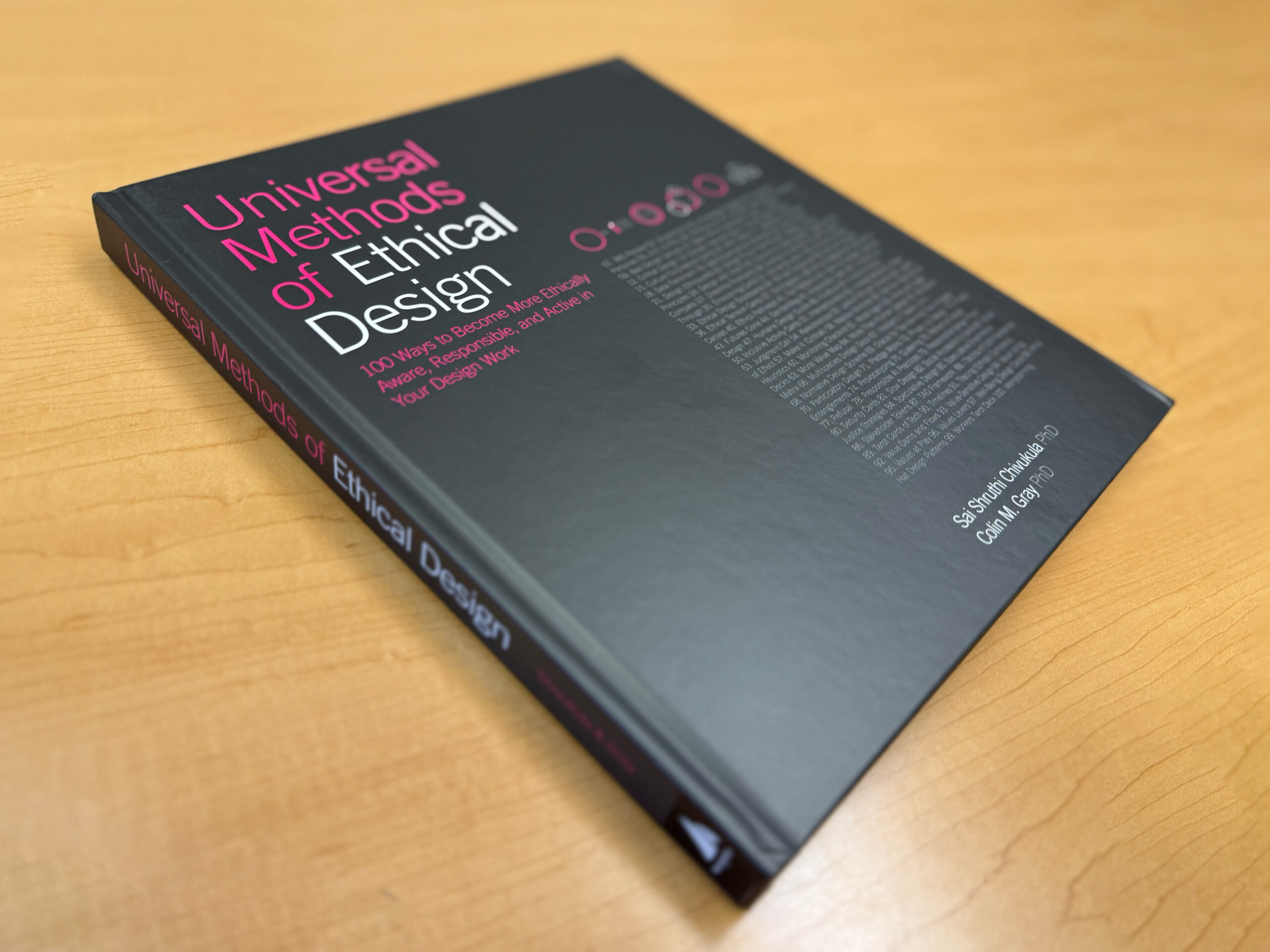
UNIVERSAL METHODS OF ETHICAL DESIGN.

Announcing the first comprehensive text describing a range of ethics-focused methods, concepts, theories, and principles
Available to order now.
Buy your copy of the Book
About the book
Are you ready to design for good? Join the growing movement of designers, technologists, and organizations embracing ethical design principles to drive meaningful change. This essential resource introduces practical methods and frameworks that foster ethical awareness, action, and reflection throughout the design process. These supports appear in this book in varied forms, including methods, theoretical frameworks, conceptual frameworks, and principles.
Whether you’re a designer, engineer, manager, or student, Universal Methods of Ethical Design is your essential reference for building socially responsible and impactful designs.

About the Authors

Sai Shruthi Chivukula
Shruthi is a design researcher with her research and teaching interests at the intersection of design, human-computer interaction (HCI), design practice, and ethics and values. She is an Assistant Professor of Information Experience at the School of Information, Pratt Institute, New York and leads the Translate research group. Shruthi has more than ten years of experience in the UX design industry and academia. She takes a pragmatist ethics lens to describe and translate ethics and tech regulation in HCI and design practice and education. Through her work, she seeks to enable the ethical awareness of technology practitioners, describe impacts on users and society, and design supports for ethical action for designers and educators.
.

Colin M. Gray
Colin is a researcher and designer focusing on HCI, design theory, and education. They are an Associate Professor and Director of Human-Computer Interaction Design in the Luddy School of Informatics, Computing, and Engineering at Indiana University Bloomington and are appointed as Guest Professor at Beijing Normal University, China, and Visiting Scholar at Northumbria University, United Kingdom. They lead the User Experience Pedagogy x Practice (UXP2) lab. They have consulted on multiple legal cases relating to dark patterns and data protection and work with regulatory bodies and nonprofit organizations to increase awareness and action relating to deceptive and manipulative design practices. Colin’s research and engagement activities cross multiple disciplines, including HCI, instructional design and technology, law and policy, design theory and education, and engineering and technology education.